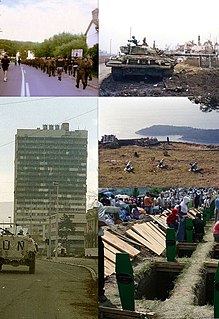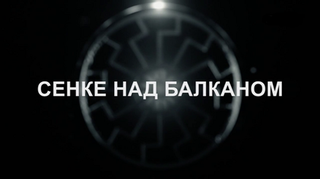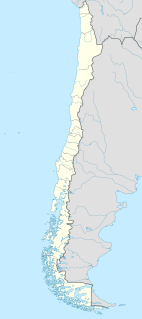
Squatting is the action of occupying an abandoned or unoccupied area of land or a building, usually residential, that the squatter does not own, rent or otherwise have lawful permission to use. The United Nations estimated in 2003 that there were one billion slum residents and squatters globally. Squatting occurs worldwide and tends to occur when people who are poor and homeless find empty buildings or land to occupy for housing. It has a long history, broken down by country below.

Đorđe Balašević was a Serbian and Yugoslav singer and songwriter, writer, poet and director. He began his career in the late 1970s as a member of the band Rani Mraz, transitioning after two albums to a solo career. He first gained mainstream prominence for writing Rani Mraz's hit "Računajte na nas", which was often described as an anthem of a generation. Noted for his vivid lyricism and poetry, Balašević was also known for weaving political commentary into his songs and live performance.

The Yugoslav Wars were a series of separate but related ethnic conflicts, wars of independence, and insurgencies fought in the former Yugoslavia from 1991 to 2001, leading up to and resulting from the breakup of the Yugoslav federation in 1992. Its constituent republics declared independence due to unresolved tensions between ethnic minorities in the new countries, which fueled the wars.

Slobodan Jovanović was a Serbian and Yugoslav writer, historian, lawyer, philosopher, literary critic, diplomat and politician, and one of the most prominent intellectuals of his time. He was the professor at the University of Belgrade Faculty of Law (1897—1940), Rector of the University of Belgrade, and the President of the Serbian Royal Academy (1928–1931). He took part at the Paris Peace Conference (1919) as an expert for the Yugoslav Government.

The Sajmište concentration camp was a Nazi concentration and extermination camp during World War II. It was located at the former Belgrade fairground site near the town of Zemun, in the Independent State of Croatia (NDH). The camp was organized and operated by SS Einsatzgruppen units stationed in occupied Serbia. It became operational in September 1941 and was officially opened on 28 October of that year. The Germans dubbed it the Jewish camp in Zemun. At the end of 1941 and the beginning of 1942, thousands of Jewish women, children and old men were brought to the camp, along with 500 Jewish men and 292 Romani women and children, most of whom were from Niš, Smederevo and Šabac. Women and children were placed in makeshift barracks and suffered during numerous influenza epidemics. Kept in squalid conditions, they were provided with inadequate amounts of food and many froze to death during the winter of 1941–42. Between March and May 1942, the Germans used a gas van sent from Berlin to kill thousands of Jewish inmates.

Jatagan Mala is the former urban neighborhood of Belgrade, the capital of Serbia. It existed from 1919 to 1961 and was located in the modern municipality of Savski Venac. Forgotten and unknown to the younger generations, Jatagan Mala became a point of media interest in 2017 with the broadcast of TV serial Shadows over Balkan, which was partially located in Jatagan Mala during the Interbellum.
Popular music in Yugoslavia includes the pop and rock music of the former SFR Yugoslavia, including all their genres and subgenres. The scene included the constituent republics: SR Slovenia, SR Croatia, SR Bosnia and Herzegovina, SR Montenegro, SR Macedonia and SR Serbia and its subunits: SAP Vojvodina and SAP Kosovo. The pop and rock scene was a part of the general Music of Yugoslavia, which also included folk, classical music, jazz etc. Within Yugoslavia and internationally, the phrases ex-YU or ex-Yugoslav Pop and Rock both formally and informally always refers to the SFRY period only, not including Federal Republic of Yugoslavia (1992–2003).

Romani people, or Roma, are the third largest ethnic group in Serbia, numbering 147,604 (2.1%) according to the 2011 census. However, due to a legacy of poor birth registration and some other factors, this official number is likely underestimated. Estimates that correct for undercounting suggest that Serbia is one of countries with the most significant populations of Roma people in Europe at 250,000-500,000. Anywhere between 46,000 to 97,000 Roma are internally displaced from Kosovo after 1999.

Romanian–Serbian relations are foreign relations between Romania and Serbia. Both countries established diplomatic relations on April 19, 1841.

West Point is a township of the Liberian capital city of Monrovia, located on a 0.53 km2 peninsula which juts out into the Atlantic Ocean between the Mesurado and Saint Paul rivers. West Point is one of Monrovia's most densely populated slums.

Slobodan Milošević was a Yugoslav and Serbian politician who served as the president of Serbia from 1989 to 1992 and within the Federal Republic of Yugoslavia from 1992 to 1997, and president of the Federal Republic of Yugoslavia from 1997 to 2000. He led the Socialist Party of Serbia from its foundation in 1990 and rose to power as Serbian President during efforts to reform the 1974 Constitution of Yugoslavia in response to alleged marginalization of Serbia, views that Serbia's autonomous provinces had too much power, making them almost independent from Serbia, and claims of political incapacity to deter Albanian separatist unrest in Serbia's autonomous province of Kosovo.

Squatting in England and Wales usually refers to a person who is not the owner, taking possession of land or an empty house. People squat for a variety of reasons which include needing a home, protest, poverty, and recreation. Many squats are residential, some are also opened as social centres. Land may be occupied by New Age travellers or treesitters.

Balkan Shadows, also known as Black Sun, is a Serbian period crime television series created by Dragan Bjelogrlić. In addition to Bjelogrlić, contributors to the screenplay include Danica Pajović, Dejan Stojiljković and Vladimir Kecmanović. The screenplay is based on a story by Stevan Koprivica. The series is a co-production involving Cobra Film, Radio Television of Serbia, Skopje Film Studio, Iskra, Radio Television of the Republic of Srpska, Macedonian Radio Television and The Film Agency of North Macedonia.
Novi Bioskop Zvezda is a squatted cinema in Belgrade, Serbia. Built in 1911, it is the oldest cinema in the city. After a period of dereliction, it was occupied in 2014 by the Movement for the Occupation of Cinemas. The squatters received international support and a documentary was released in 2018 about the occupation.
Squatting in Slovenia is the occupation of derelict buildings or unused land without the permission of the owner. Housing was illegally built from the 1960s onwards and informal settlements have been set up by Romani people or poor immigrants. In the capital Lubljana, there is the autonomous zone of Metelkova and the Rog (factory) self-managed social centre was evicted in early 2021.
Squatting in Uruguay is the occupation of unused or derelict buildings or land without the permission of the owner. In the nineteenth century, pueblos de ratas developed when gauchos were forced to settle by the rural enclosures for cattle farming. In the early twentieth century, European migrant workers lived in conventillos.

Squatting in Peru is the occupation of unused or derelict buildings or land without the permission of the owner. From the 1940s onwards, land invasions to create shanty towns called barriadas and later pueblos jóvenes have occurred. At first they were repressed, then the government tolerated them and by 1998 it was estimated 2.5 million inhabitants lived in pueblos jóvenes in the capital Lima. In Lima there are also slum tenements in the centre known as solares or tugurios. A Wall of Shame has been built to separate rich and poor areas of the city. During the COVID-19 pandemic in Peru, an increase in the occupation of UNESCO World Heritage sites such as Caral and the Nazca Lines was reported.

Squatting in Vanuatu is the occupation of unused land or derelict buildings without the permission of the owner. The Republic of Vanuatu is an island country in the South Pacific Ocean. After independence in 1980, informal settlements developed in cities such as Luganville and the capital Port Vila. Land in Vanuatu is either custom land owned by indigenous peoples or public land owned by the republic.

Squatting in Chile is the occupation of unused land or derelict buildings without the permission of the owner. From the 1960s onwards, informal settlements known as callampas were permitted although there were also evictions such as the massacre of Puerto Montt in 1969. In the 1970s, the government of Salvador Allende encouraged occupations, then following the coup d'état, the military junta repressed squatting. Callampas then became known as campamentos.

Squatting in Sudan is defined as the "Acquisition and construction of land, within the city boundaries for the purpose of housing in contradiction to Urban Planning and Land laws and building regulations." These informal settlements arose in Khartoum from the 1920s onwards, swelling in the 1960s. By the 1980s, the government was clearing settlements in Khartoum and regularizing them elsewhere. It was estimated that in 2015 that were 200,000 squatters in Khartoum, 180,000 in Nyala, 60,000 in Kassala, 70,000 in Port Sudan and 170,000 in Wad Madani.

















